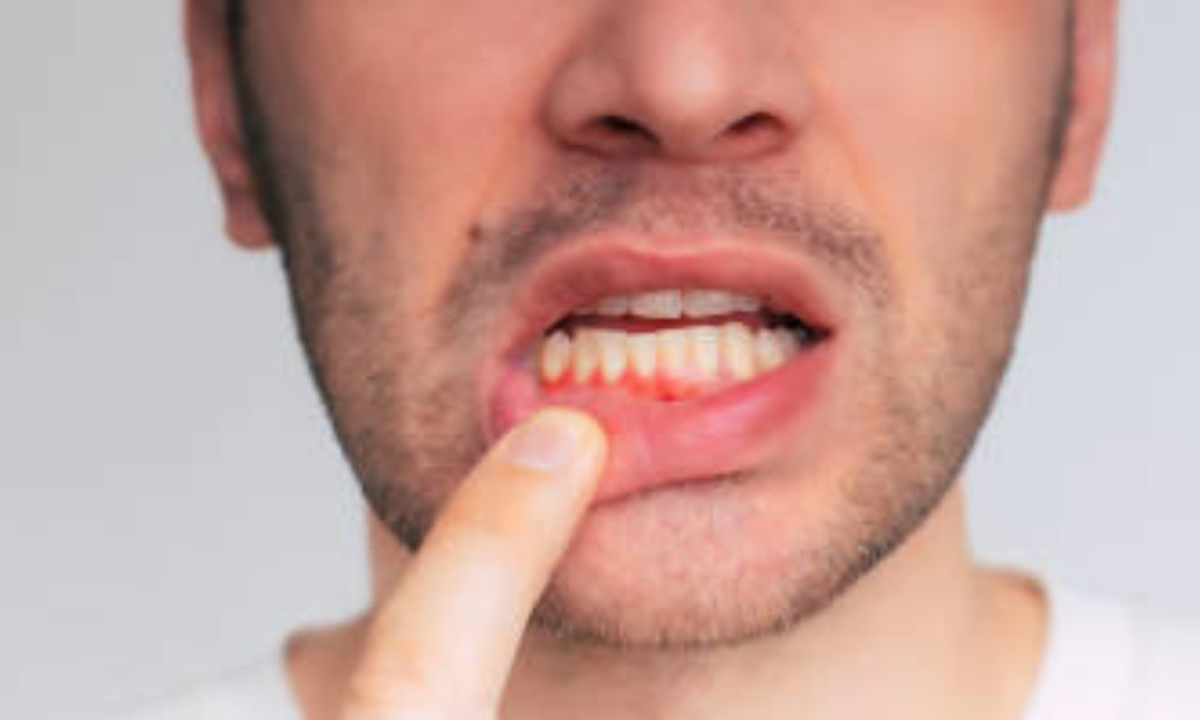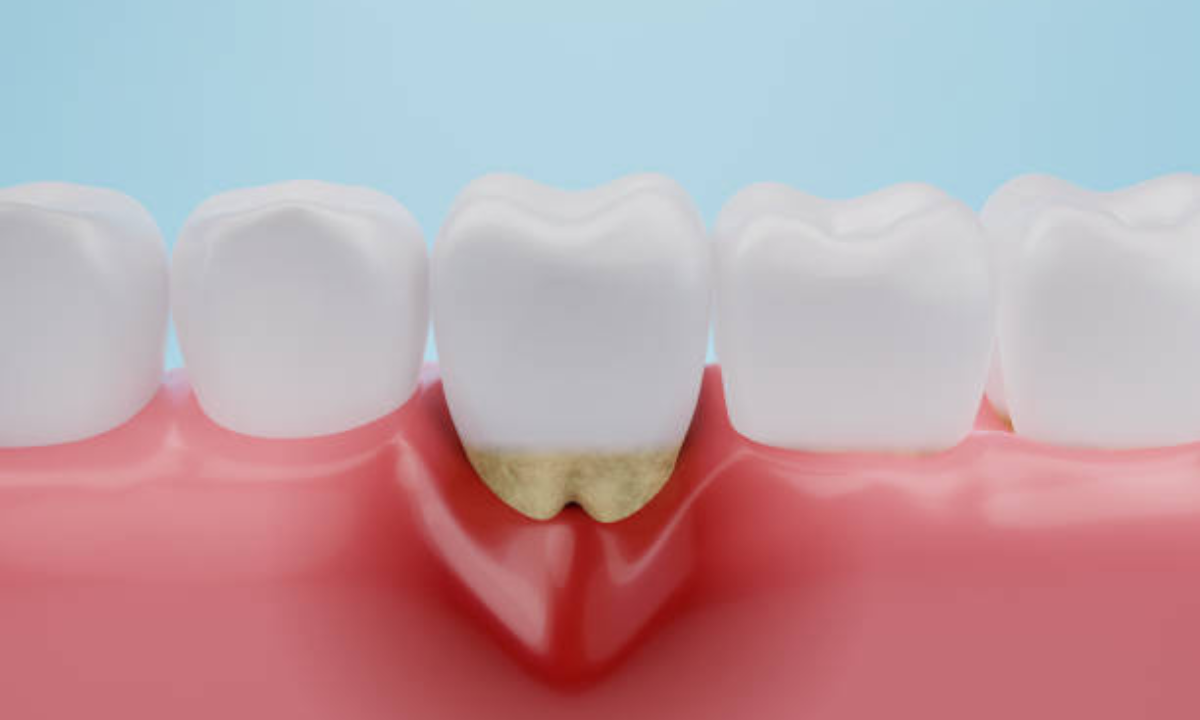Gingivitis is the primary gum disease in which there are red-colored spots on the gums. If this remains untreated, it becomes some severe diseases such as periodontitis and leads to losing some teeth. In that direction, it’s important to learn the early symptoms of gingivitis and how to tackle those, so that oral health will be preserved properly. This article provides knowledge on detecting and treating gingivitis.
Gingivitis begins with such early signs and symptoms as bleeding on gums and redness of gums. If not treated, it progresses to severe gum infections. This condition can easily be avoided if diagnosed at the earliest possible time by adopting self-care practices. Dental cleaning might be the first phase of treatment at home.
What is Gingivitis?
Gingivitis is the most mild form of periodontal disease and involves inflammation of the gum tissues. Ordinarily, it appears due to plaque on the teeth that contains bacteria which causes irritation of the gums. Gingivitis is reversible when proper oral hygiene is followed. Otherwise, it can bring about irreversible damage.
Causes of Gingivitis
Some of the causes of gingivitis are as follows:
- Poor Oral Hygiene: Failure to floss and brush regularly leads to the deposition of plaque
- Smoking: The gum tissues are constantly irritated by smoking, which reduces their strength and slows healing.
- Hormonal Fluctuation: At a pregnant, pubescent, or menopause stage, the gums may become sensitive.
- Some medications: There are drugs, which increase the rate at which the body forms its natural defensive mechanism over the gums – saliva.
- Chronic Conditions: The risk is greater in chronic conditions, including diabetes and heart conditions.
Warning Signs for Gingivitis
Gingivitis can be diagnosed early with proper treatment if these warning signs occur:
- Red or Swollen Gums: Healthy gums are a shade of pink and are not red or puffed up.
- Bleeding Gums: This is normal when brushing and/or flossing.
- Bad Breath: Commonly known as halitosis, the presence of bacteria.
- Receding Gums: The gums recede and expose the sensitive parts of the teeth.
- Pain or Sensitivity: Pain around the gum line suggests a problem.
Gingivitis Consequences if Not Treated
This progresses into severe gum disease termed periodontitis. At the later stage, deep pockets are formed between the gums and the teeth. Some lead to bone loss and finally tooth loss. More severe complications include:
- Higher systemic infections such as heart disease and diabetes
- Chronic inflammation and hence, general malaise.
- It is also an aesthetic infection since it brings recession and ultimately the loosening of teeth.
Best Prevention Measures
This disease that afflicts the gum will only be prevented through dedication to proper daily care for oral health:
- Brush twice daily: Using soft bristles and fluoride.
- Brush daily: This removes plaques between teeth that the toothbrushes can not reach.
- Use Antiseptic Mouthwash: A good mouthwash prevents the growth of bacteria inside the mouth.
- Healthy Diet: Avoid sweet food that causes plaques inside the mouth
- Quit Smoking: Tobacco is the primary cause contributing to gum disease the highest
Professional Therapy of Gingivitis
Gingivitis can be treated only effectively by a dentist. It encompasses
- Professional Cleaning: Scaling and polishing to remove plaque and prevent tartar buildup.
- Deep Cleaning Scaling and Root Planing: to clean into the gum pocket to treat.
- Antibiotic Therapy Oral or topical antibiotics may be prescribed to prevent additional infection.
- Surgical Treatments: Flap surgery or tissue grafts are considered in severe cases.
Home Remedies to Cure Gingivitis
Professionally, treatment is required but the following home remedies may be used adjuncts to the treatment:
- Salt Water Mouthwash: It does swelling and kills germs
- Oil Pulling: Swishing coconut or sesame oil helps reduce plaque
- Aloe Vera Gel: Reduces inflammation and heals sooner
- Clove Oil: Is antibacterial and works pain relieving
Periodontitis
If gingivitis is not treated, then it advances into periodontitis. Periodontitis is the extreme retraction of the gums, loss of bones, and even loss of teeth. If detected early and treated by a dentist near you, then this progression can be stopped.
How Dentists Treat Gingivitis
The dentists in Whitefield are patient-friendly and offer:
- Treatment plans as per individual needs.
- Teach patients about oral hygiene practices.
- Follow up with the patient to check the gums.
Conclusion
Gingivitis is an extremely common condition but is treatable as long as identified in time. It’s all just about being alert for early signs such as red and inflamed gums and blood oozing during brushing and flossing, and acting quickly enough so it doesn’t exacerbate into more serious gum diseases like periodontitis. Proper oral hygiene in brushing and flossing daily with antibacterial mouthwash can avoid gum disease for you. The most significant routine dental check-up is that the dentist will clean your teeth, recognize these problems at early stages, and give professional advice that keeps them from getting those diseases. Anyone can visit one of the most recognized dental clinics in Whitefield to be proactive about saving your smile and oral health.


